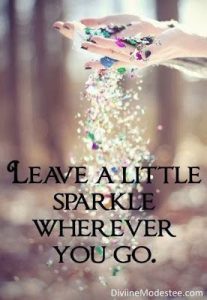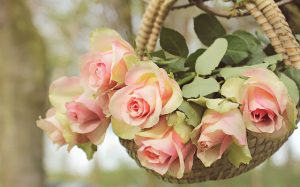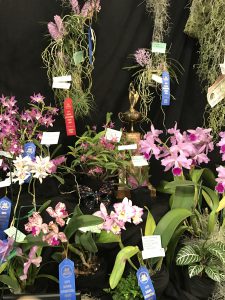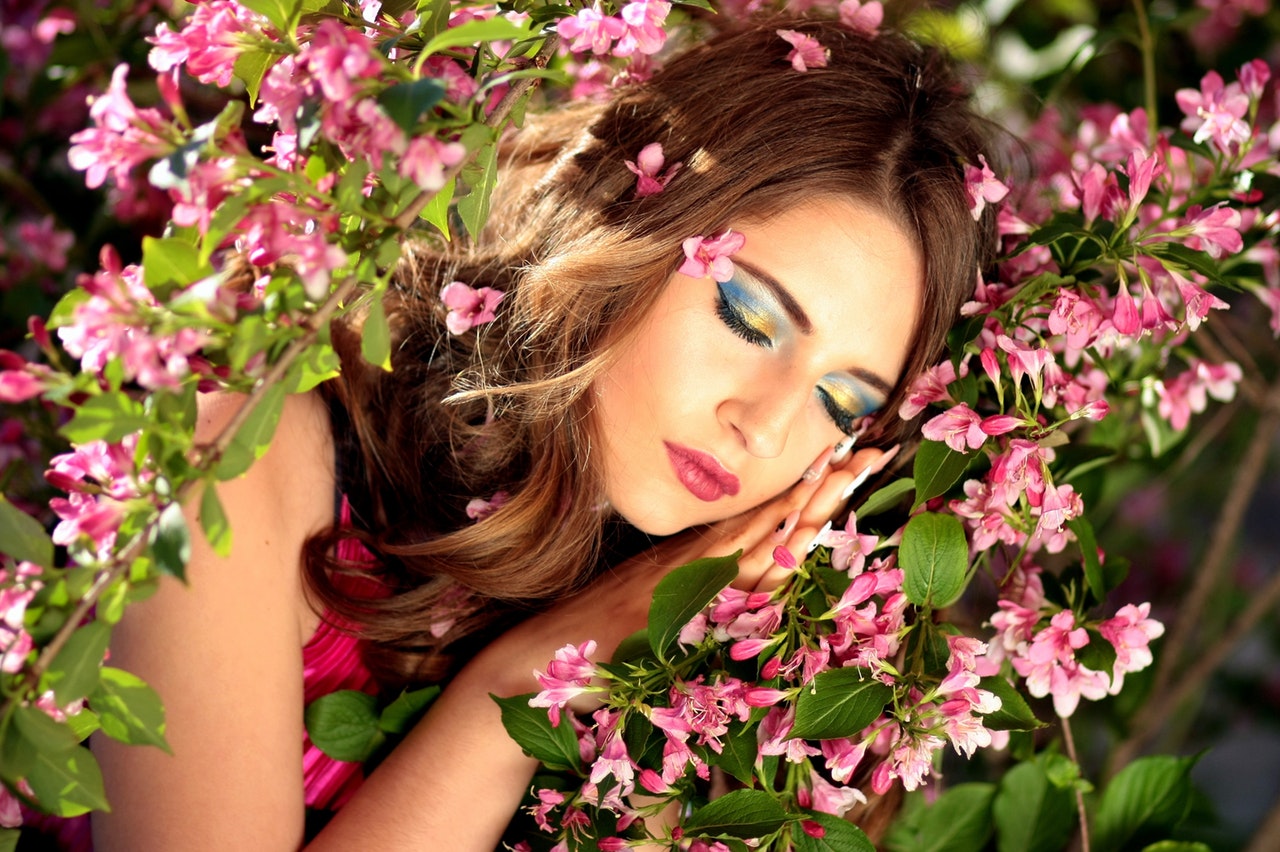Ever had the experience of either really loving or hating a fragrance but not being able to put into words the reason(s) why? The ability to accurately describe what our nose is telling our brain doesn’t come easily to most of us. You don’t need the nose of a bloodhound or the training of a master perfumer however to describe the smell of a perfume. It simply takes focus and practice to tell a perfume story.
Here are a few suggestions to help you get started:
- Spritz the fragrance onto a blotter and take a sniff before evaluating. Repeat at least twice, with a break in between. During the break, the scent strip should be away from the vicinity of your nose to allow for it to recover in between. Continuous sniffing will lead to olfactory overload and cause the notes to blur into each other.
- Focus on the scent without any distractions. Pay full attention to what you are smelling without being affected by things such as strong beverages or loud noises. You shouldn’t be wearing any fragrance on yourself for obvious reasons. Closing your eyes may be helpful.
- Make notes of any impressions or feelings you
 experience during smelling the scent. Try to find words or memories that remind you of the fragrance. Dig deeper to find meaningful connections. If you smell citrus, is it mandarin, lemon, bergamot or perhaps grapefruit? If it’s woods that you are noticing, try to see if you can identify the type. Is it balsam, myrrh, pine or frankincense?
experience during smelling the scent. Try to find words or memories that remind you of the fragrance. Dig deeper to find meaningful connections. If you smell citrus, is it mandarin, lemon, bergamot or perhaps grapefruit? If it’s woods that you are noticing, try to see if you can identify the type. Is it balsam, myrrh, pine or frankincense?
- Try to understand how you you interpret different fragrance families. For example, floral fragrances can be soliflore (single note) but most are floral bouquets (a combination of different flower notes). Floral fragrances are often perceived as romantic, feminine or poetic. Amber or “Oriental” fragrances often conjure up images of the Far East – of spices, musk, exotic flowers and balsam. They are commonly perceived as mysterious, warm and sultry. Chypre fragrances smell woody-mossy and frequently have a citrus top note and a woody base. Chypre scents can be described as complex, long-lasting and rich.
- Realize that fragrance families can be mixed with other fragrance families. Once you’ve identified a floral note, for example, try to pinpoint which
 family it belongs in: Floral-Fruity, Floral-Marine, Floral-Aldehyde, Floral-Oriental, Floral-Gourmand, etc.
family it belongs in: Floral-Fruity, Floral-Marine, Floral-Aldehyde, Floral-Oriental, Floral-Gourmand, etc.
- Use adjectives. Find words that identify the general vibe of the smell. Examples are: dewy, bubbly, musky, familiar, pungent, warm, unique, refreshing, light, heavenly, peculiar, pleasant, green, fresh, overpowering, fine, delicate, cool, exotic, smoldering, zesty, aromatic, delicious, suffocating, clean, cheap, gentle, powerful, precious, heavy, rare, tangy, or sweet.
- Try to employ creative imagery. Instead of saying that it reminds you of spring, try “the first fresh and clear morning of spring after a particularly cold and brutal winter.” If a scent reminds you of the beach take it a step further by describing “sun, salty water swallowed when hit by a wave I didn’t see coming, getting knocked in the head by a runaway frisbee, sand unexpectedly stinging my eyes when the wind suddenly kicks up” and so on.
- Use verbs. Verbs are strong and active words that can help you better explain the smell. Smells can confuse, give warmth, permeate, distract, waft, linger, suggest, command attention, bring happiness, cool off. Other action words that can be used are floating, digging, lifting, rotting, creeping, charging, drifting, and whispering.
- Visualize what the scent does to you. Does it follow you, embrace you, remind you of your worst blind date or flashback you to your senior prom or wedding day? Try to be as in touch as possible about its effect on you.

- Borrow from the other senses to explain a fragrance. Smell doesn’t have a huge vocabulary of its own so borrowing from the other senses helps. From sight, we can imagine a scent to be bright, clear, large, white, black, pink, red, green, blue, fast, slow, thick. From sound, a fragrance can be called harmonious or discordant, loud or soft. From touch, it can be smooth or rough, soft, cool or hot. Taste also gives many choices, especially since smell is so closely linked to the sense of taste. A scent can be salty, sweet, sour, bitter, chocolatey and fruity, to name a few.

- Be clear on your reasons for describing the fragrance. Is the scent interpretation just for you or are you planning to describe it to someone else? Are you hoping to capture the overall mood of the scent and the feelings it generates for you? Are you trying to identify as many notes as you can in the composition of the fragrance?
- Try to define the feelings and emotions the fragrance conjures up for you. If it reminds you of a particular event, remember what you were feeling at the time. For me, certain fragrances make me feel immediately happy, while others may make me nostalgic or even disgusted. Occasionally I’ll come across ones that make me feel ambiguous and they can be the hardest to describe.
Do you have any tried and true tips to share? If so, please leave a comment below.
Remember: A closed mouth never gets fed! ?
Until the next time,



That was a fun read, thanks! It made me think of perfumes and colognes that were memorable to me in the past.
They say “the nose never forgets”… and I have to say that’s true in my experience. Even decades later if I get a passing whiff of the cologne worn by a boyfriend in the past, it evokes memories instantly.
I think for me 2 big helps when I am looking for a new fragrance and trying to define what I’m smelling are 1) the name the perfume company has assigned it… they do so very carefully, and somehow it helps and 2) my limiting my smelling to just a few, and not a huge range.
What’s your fave scent combo these days? Or has it always and will forever be a certain one? (Mine has been warm, vanilla type scents for most of my life.)
Hey Marlene,
I love vanilla scents too, especially during the cooler months, but lately I’ve been gravitating to fresh or soft florals with jasmine, gardenia and lily of the valley. I’m currently wearing Gucci Bloom and Martin Maison Margiela Replica Flower Market as well as a scent that I’ve created.
Thanks for popping over!
Erica
I came to your page looking for ways to help me choose a suitable perfume as a gift. You’ve given me a lot to digest to determine for myself what it is I like about a fragrance. I suppose many women are wanting one that is appealing to men, so at least now I have some ammunition to describe what it is I like. What about fragrances for men? Are you involved with that?
Hi j52powell,
It’s funny that you mention this because although I haven’t delved too much into men’s fragrances – and truthfully there isn’t a sexual delineation since all scents can be worn by anyone who loves the fragrance – but I plan to review some new “mens” fragrances I think are really great. If you want to check out my Father’s Day posts you can hear about some I’ve already commented on.
Erica
What a great site! I never really thought so much into the scents I was wearing or trying on. This makes it an experience and not just something I do every day. This really makes you stop to think in the moment and be more aware of the perfume you choose.
Hi Ashley,
Being able to describe a fragrance gets easier with practice. If you’re interested in learning more about this you should check out my previous post from – Tell a Perfume Story: How to Describe the smell of Perfume. It was reposted last month.
Cheers and have a fragrant week-end:)
Erica
Hi Erica, it was so much fun going through your website as I am a fragrance person myself. But I am not an expert like you, I just know I like it when I smell it. You have a great way of putting into words your description of the scents and your “how to describe the smell”. The steps are kind of complex for me, never thought of it that way. I just know that when I smell a scent I love, it makes me feel so good I have no words to describe. Well, your website certainly showed me a better way to describe the smell of perfume. With practice I might be able to develop that skill too.
Hi Rebecca,
I’m not sure I can accurately be called a scent expert but I do qualify as a perfumista:) Describing a scent can be challenging for us all but you’re right about it getting easier with practice.
Thanks for stopping by and cheers,
Erica
I love Perfume …I love how notes in perfume play a distinct role. Musks scents are my favorite. I also love perfume notes that embody far eastern origins like myrrh and frankencence. Woody scents seem to tap into my intuitive nature … Learning how to describe perfume can be tough so thanks for the ideas, A question, do you know of any brand to recommend that have musks scents that are floral yet woody but light and not heavy? Thanks for that help in advance ….
Hi Stardust,
There are many really great floral/woody/musk perfumes at very different price points. Don’t Cry For Me by ALTAIA is a beautiful scent but it is pricy ($210 for 100 ml bottle) and Lovely by Sarah Jessica Parker can be purchased at many locations for under $20 for a 3.4 oz bottle. I suggest you go into a department store and let your nose decide what smells good to you.
Cheers,
Erica
Nicely written article on how to tell a compelling fragrance story. I think the most important factor about fragrance is how it makes you feel and the effect it has on people you are close to. Smelling a certain fragrance can immediately make you think of a lost loved one who wore that fragrance. And certain fragrances on the opposite sex can be a total turn on.
Hi Karen,
There’s an incredibly strong link between scent and memory. Your point about how fragrance affects others around you is an important one since many people are very sensitive to fragrance. It definitely can be an issue if your partner or office mates can’t tolerate what you’re wearing. Luckily that hasn’t happened to me yet and hopefully won’t any time soon.
Thanks for dropping by:)
Erica
Perfume often smells different on my skin then it does in the store so I like to test it that way before I actually buy it. I have also heard that you should clear the actual smell out of your nose by sniffing coffee before you smell it again. Do you suggest that?
Angela
Hi Angela,
Whether or not smelling coffee beans rejuvenates your sense of smell or not remains controversial. I personally think that it is another perfume myth since it’s never been scientifically proven to work. The best way to reduce olfactory fatigue, in my opinion, is to smell your own unscented skin. The crook of your elbow is a good spot.
Thanks for dropping by:)
Erica
This is a great post. I do find it hard to articulate how a perfume smells or even the kind of smell I like! I only know the words such as ‘musky’, ‘floral’ and ‘fruity’ which most perfumes have at least one of to describe them and it really doesn’t differentiate!
This is great and I hope it will help me to become a lot more descriptive in the future!
Hi Louise,
Learning how to describe an aroma takes practice. Being aware of how things smell to you is what really matters because the same scent may smell wildly different to others.
Try to have fun with it and thanks for your comment:)
Erica